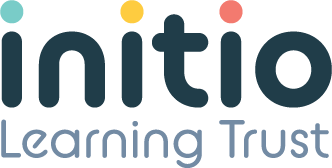PSHE
Schools, in partnership with parents, have a vital role in preparing children and young people to negotiate the challenges and opportunities of an increasingly complex world.
Personal, social, health and economic (PSHE) education is the school subject that deals with real life issues affecting our children, families and communities. It’s concerned with the social, health and economic realities of their lives, experiences and attitudes. It supports pupils to be healthy (mentally and physically); safe (online and offline) and equipped to thrive in their relationships and careers. PSHE education helps all children and young people to achieve their fullest potential.
PSHE education is important for students as it:
- Contributes to physical and mental health and wellbeing, encouraging individual responsibility for health.
- Contributes to the safety and protection of our children and young people, from staying safe online to understanding risks associated with drugs and alcohol.
- Promotes independence, resilience and responsibility — preparing children and young people for future roles as parents, employees and leaders.
- Supports employability by developing the personal and social skills demanded by commerce and industry.
- Supports pupils to be critical consumers of information, and develops the skills to identify misleading news or views on social media and elsewhere.
In summary, PSHE education provides opportunities to learn about :
- Relationships: including developing and maintaining positive relationships and dealing with negative relationships. This may include learning about bullying, consent, how to communicate effectively, inappropriate behaviour in relationships and, at a later stage, topics such as sexual coercion and grooming.
- Developing independence, resilience and responsibility: including preparing children and young people to face life’s challenges and make the most of life’s opportunities.
- Health: including healthy lifestyles, healthy eating and exercise; mental and emotional health; drug, alcohol and tobacco education; emergency life-saving skills.
- Managing risk: including understanding personal safety and online safety; financial choices and risks; appreciating the value of taking risks in certain situations (e.g. entrepreneurial risks).
- Economic wellbeing: including the role of money, influences on our use of money, gambling, careers education
- Employability skills: including learning about enterprise, business and finance. Developing the skills and attributes to succeed at work, including communication skills and confidence.
The knowledge, skills and attributes developed through PSHE education combine to equip pupils for numerous challenges. First aid provides a good example of this in practice. Pupils can learn the practical steps (e.g. CPR) in PSHE lessons, but also develop the confidence and awareness to put this knowledge into practice and step in when faced with a real-life medical emergency.
Relationships and Sex Education (RSE) at The Sir John Colfox Academy
We believe RSE is an important aspect of the PSHE programme which makes a significant contribution to the development of personal skills needed by students to establish and maintain positive, healthy relationships. RSE enables young people to make responsible and well-informed decisions about their health and wellbeing. It supports students in forming positive beliefs and attitudes about sex and sexuality, relationships and feelings.
RSE is taught in a spiral curriculum, meaning that topics are repeated as they progress up the year groups adding further detail to the subject for an age appropriate understanding. Resources for teaching are taken from the PSHE Association, Cre8tive Curriculum and Sexual Health Dorset.
The content that is studied is summarised below and follows the statutory Health Education Guidance for 2020.
Year 7 – Friendships, respect and relationships
This unit looks at consent and boundaries and evaluates why personal space and boundaries are important when growing up. It then looks at the wide range of relationships that young people have and the qualities of good friendships. The unit then finishes looking at how to manage these relationships and looking at pressures and influences within different types of relationships.
Year 8 – Identity, relationships and sex education
This unit starts with an introduction to RSE looking at what makes a healthy relationship. It deals with conflict than can happen within a relationship. They study the difference between sex and gender and the prejudices and stereotypes associated with these. All students learn about the menstrual cycle. The unit finished with a brief look at what is love and an introduction to contraception.
Year 9 – Sex the law and Consent unit
Year 9 start looking at the law in relation to sexual consent and FGM. It then looks at delaying sexual activity and the pressures that can be associated with this. It covers the positive and negative reasons to have sex and explores the consequences of making a relationship sexual. The unit progresses onto pleasure and looks at masturbation and the risk associated with different sexual activities.
Contraception and STI’s
In the second half-term of RSE Year 9 study STIs in detail. They then look at different forms of contraception looking at how they work and the pros and cons of each type. The realities of contraception and the link with pregnancy and STIs are also studied. Sexual harassment and stalking are explored and knowing the difference between flirting and sexual harassment. The unit finishes looking at HIV and AIDS in more detail.
Year 10 – Exploring Relationships and Sex Education
Year 10 studies previous topics in more detail and makes detailed links with the media. It looks at the legal, emotional and social consequences of sending sexts. This is then explored further with pornography looking at what is and is not legal and identifying the differences between what is seen in pornography and real life. It explores how common access to pornographic material can affect attitudes and beliefs towards sex, relationships and self. Sexual violence is covered looking at assault and rape. Then to finish students, debate the sexualisation of the media and the impact this is having on teens.
Year 11 – Sexual health
Year 11 study the importance of their sexual health and the impact bad choices can have. They revisit contraception and STI’s in further detail. They look at respect in relationships and the importance of this. They then look at fertility and what can impact fertility, leading onto different types of fertility treatment.
For further information on the teaching of RSE, The policy for Relationships and Sex Education (RSE) can be found on the school website.

